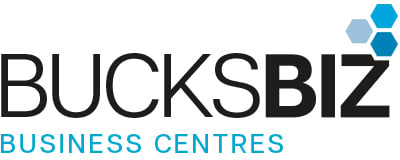This week is Dyslexia Awareness Week. Dyslexia is a learning difficulty that affects 10% of the population. That means that one in ten of us are dyslexic – a huge figure, so it’s about time we started talking about it.
Although it’s classed as a disability, people with dyslexia are often good problem-solvers, can understand complex situations and tend to think laterally. There are so many strengths that can have a positive impact in the workplace (and beyond!) – and this should be celebrated.

What is dyslexia?
Most employers will have staff with dyslexia, whether diagnosed or not. It’s important to be able to identify any signs, but to also support staff where support is needed. People with dyslexia have trouble reading accurately and fluently, and may also have trouble with reading comprehension, spelling, and writing.
So how does this impact day-to-day tasks? Consider all the jobs that involve reading, spelling and writing. We’ve listed some common ones for you:
- Reading – Presentations, staff meetings, emails, CVs, job applications
- Spelling and Writing – Emails, press releases, job descriptions, social media posts
When you list all of the tasks you do on a daily basis, you realise just how many include reading and writing.
What can I do to help?
As an employer, there are a number of things you can do to support staff with dyslexia so they’re able to achieve their full potential, and have a fulfilling career.
You should adjust the needs according to the employee, for example, how severe their dyslexia is and the job role itself. It’s important to note: an employee does not need to have had a diagnostic assessment in order to receive reasonable adjustments from the business.
These may include the following:
- Workplace Needs Assessment – carried out by a dyslexia specialist, to determine the appropriate support required for the individual
- Different methods of communication – replace written communication with verbal where possible, even if it’s picking up the phone and leaving a voicemail
- Allow extra time – if there’s an assignment that requires a quick turnaround or deadline, give the individual extra time to read and complete the task
- Meetings – use visual aids such as PowerPoint, reduce the amount of text, and where possible, use diagrams and images instead. Try coloured text, or highlight key areas that require special attention
- Assistive technologies – if your budget allows it, invest in assistive technologies such as a screen-reader, scanning pen and mind-mapping software – all have proven to be effective tools and can be a real game-changer for some individuals.
- Be font smart – Good fonts for people with dyslexia include Helvetica, Courier, Arial, Verdana and Computer Modern Uni- code, whereas Arial Italics should be avoided at all costs, as it decreases readability.
What common strengths do dyslexic people share?
There’s a lot of negative language around disabilities in general, so it’s time we started to change that! It’s important to remember that there are positives to thinking differently – if we were all the same, how dull would the world – and our workplaces – be?!
So, with that in mind, here are some of the common strengths that dyslexic people share.
- They are ‘Picture Thinkers’: enabling more ideas, solutions and opportunities
- Sharper peripheral vision and good spatial awareness
- Entrepreneurially-minded
- Highly creative and tend to excel in visual and creative fields
Nobody should be held back from fulfilling their potential at work, whatever the circumstances may be. For further information, please visit The British Dyslexia Association.
If you are interested in finding out how we can help you with small workshop space to rent near me or commercial property for rent Bletchley, just click the link below and someone from our Milton Keynes Business Centre will get in touch.
Related Posts
The Benefits of Apprentices
This week is National Apprentice Week, so we thought we'd take a look at the advantages to...
National Afternoon Tea Week
This week is National Afternoon Tea Week - how are you celebrating? Read on for some interesting...
Men's Health Week 2019
With Father’s Day just a few days away, The Men’s Health Network have launched their annual ‘Men’s...

